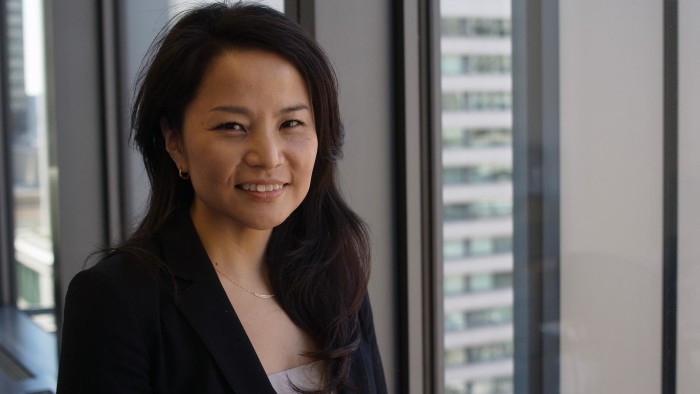Women in Business — Rei Hasegawa

Roula Khalaf, Editor of the FT, selects her favourite stories in this weekly newsletter.
Rei Hasegawa is an MBA graduate of the Desautels Faculty of Management at McGill University programme in Asia and the first local hire of LinkedIn Japan. Her post-MBA career included working her way up the ranks at Google and joining a fledgling marketing start-up — which after initial success failed to withstand the after-effects of the 2011 earthquake and tsunami.
Ms Hasegawa’s role at LinkedIn, which she joined in 2011, involves educating and inspiring members via public relations, social media and training. She has also worked on welcoming prime minister Shinzo Abe and other Japanese business leaders as LinkedIn Influencers.
1. Who are your business influences?
Momofuku Ando, founder of Nissin Food. He is a late bloomer who invented instant ramen (cup noodles) at the age of 48, and his quote: “It is never too late to start — you can begin at any age” inspires me to keep trying new things.
And Mother Teresa has been my role model since I met her when she visited Tokyo in 1982. At the mass, she told us to “do small things with great love”. This has been the principle of my life.
2. Why did you choose to study for an MBA?
When I was 29, I was transferred from marketing to the sales admin department. The team consisted of only women. If I were a man, I would not have been transferred. This is when I realised I needed to take control of my career. I needed to develop my knowledge, hone my skills and expand my network. I thought an MBA would lead me to the path I want to follow.
I chose McGill because they offered a part-time MBA course in Japan. The classes were taught in English and held on the weekends. For the second year, when my employer started new benefits for studying abroad, I took the opportunity to study in Montreal for six months.
3. What is the best piece of advice given to you by a teacher?
Leadership professor Nancy Adler’s advice: “you cannot change people, but you can help them change.” She told us this after seeing our group project video, which is a story about making people change. The advice is very basic but it was one of the best pieces I remember. Now when I give advice to others, I try not to force people to change. I give them suggestions, hints and a hand for them to have the courage to move on. It works in both my professional and personal life.
4. What is your favourite memory of business school?
Working on group projects because it gave me an opportunity to learn how to work in a diverse environment, with students of different cultures, industries, ages, genders and nationalities. In Japanese culture, we tend to follow our leaders and try to do things without argument. However, through the school projects I experienced different work styles and dynamics and learned how people interact, discuss, divide work and develop relationships. I was also able to visit my classmate’s houses from time to time. One of my classmates was an Italian guy who loved to cook, so the group always enjoyed his Italian dishes after studying.
5. What would you do if you were dean of a business school for the day?
I would create an international live classroom by using videoconference systems, connecting with schools around the world.
6. What is the worst job you have ever had?
Looking back my career, I appreciate everything because I could always learn. But the worst job was probably when I had to issue invoices all day in the sales admin department, because I was not learning anything. However, I really appreciate the period because it made me think about my career and led me to the MBA. In fact, because I was very fast to finish the operations, I could use my extra hours to study.
7. How do you deal with male-dominated environments?
Be authentic, as advised by Pat Wadors, vice-president of global talent organisation at LinkedIn. In the business world, women sometimes try to make themselves larger than life to fight with men, but this is not sustainable. Women have unique traits so there is no need to change and become something else. Work itself is already tough, let’s not make it too hard. You can be yourself and create value in the world.
8. How do you deal with pressure?
I convert it into energy and motivation. When you accomplish something under pressure, it means you have done something beyond your comfort zone so I think pressure is the chance for you to grow.
9. What are your top tips for networking?
Appreciate the moment you meet and share time with people because the more people you meet, the more you broaden your horizons. Life lasts about 80 years, so learning through experience and gaining wisdom from others is almost like adding more years to your life. Try to ask good questions because the answers will make you wiser.
10. What are your future plans?
My goal is to become one of the group of female business leaders in Japan and a role model for young female Japanese students, because they do not know how exciting it is to work and give something back to the world. A survey by the Health, Labour and Welfare Ministry showed that one in three young women in Japan want to be housewives, but Abenomics proclaims a goal to fill 30 per cent of leadership positions in Japan with women by 2020. I want to share and inspire Japanese women to find career opportunities and shine.
Comments